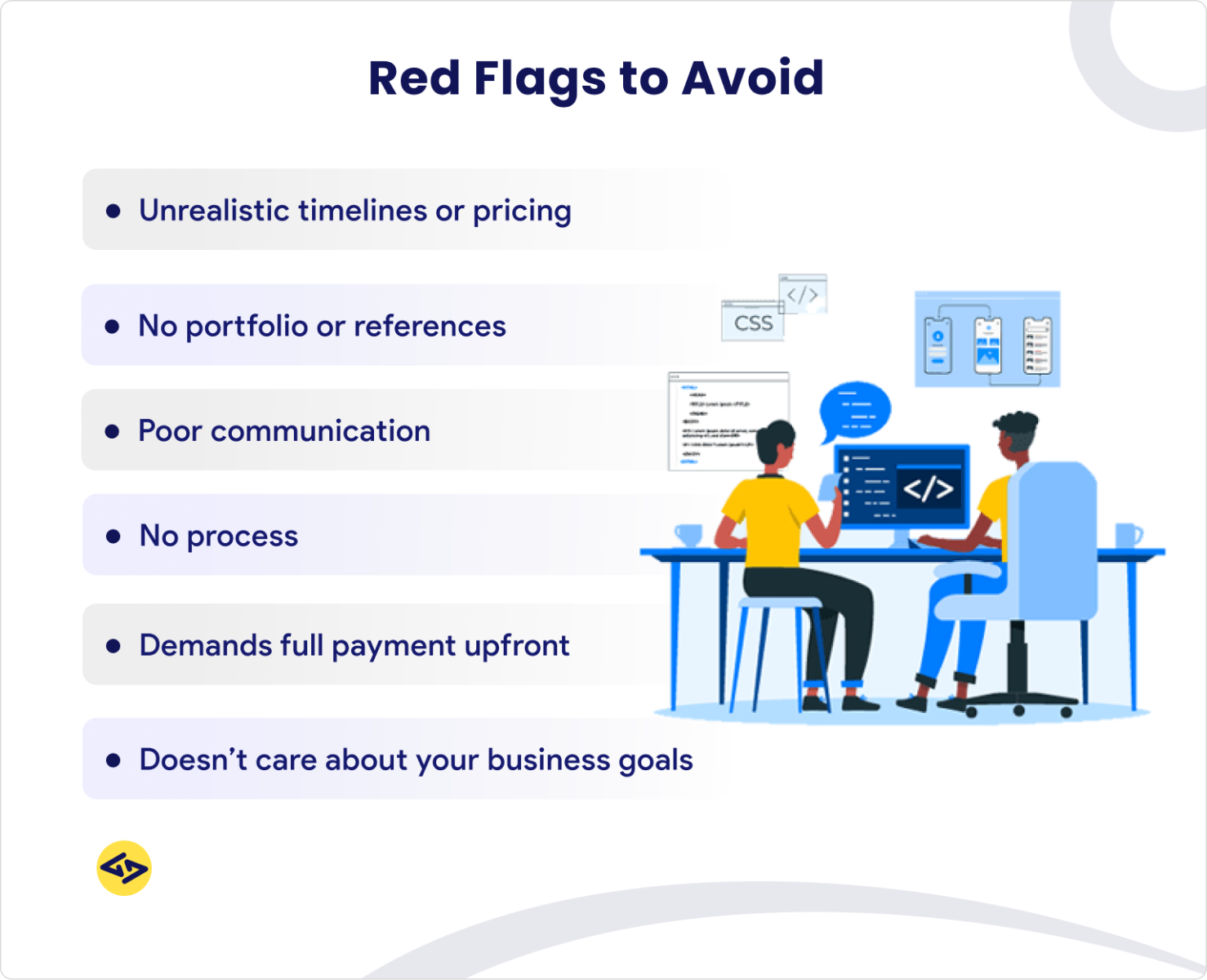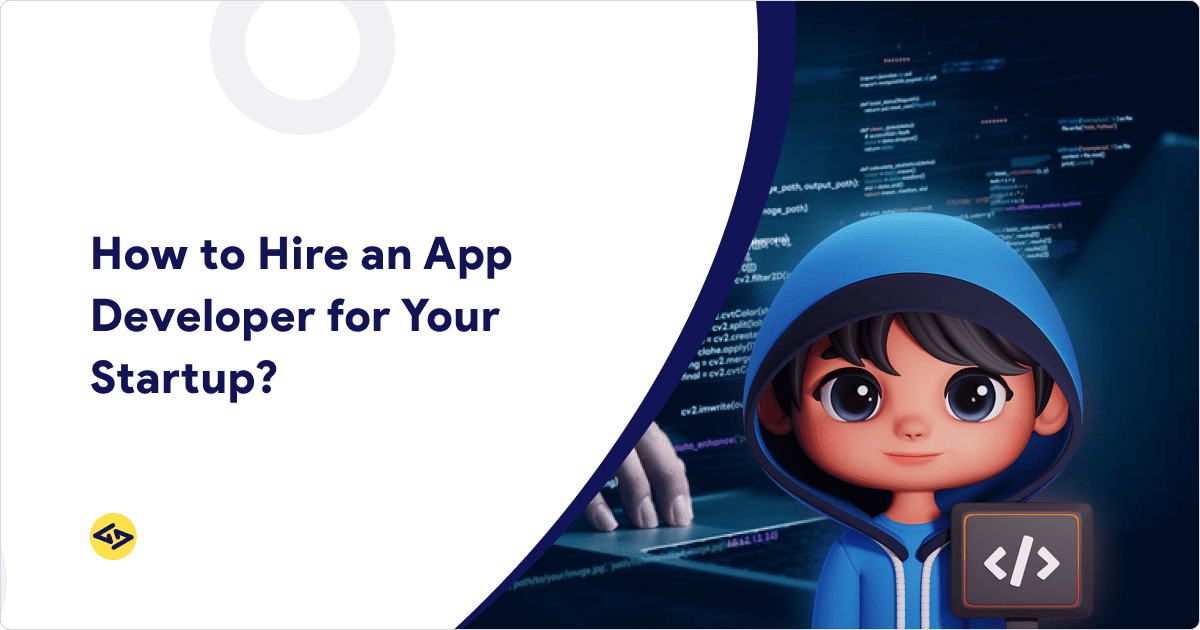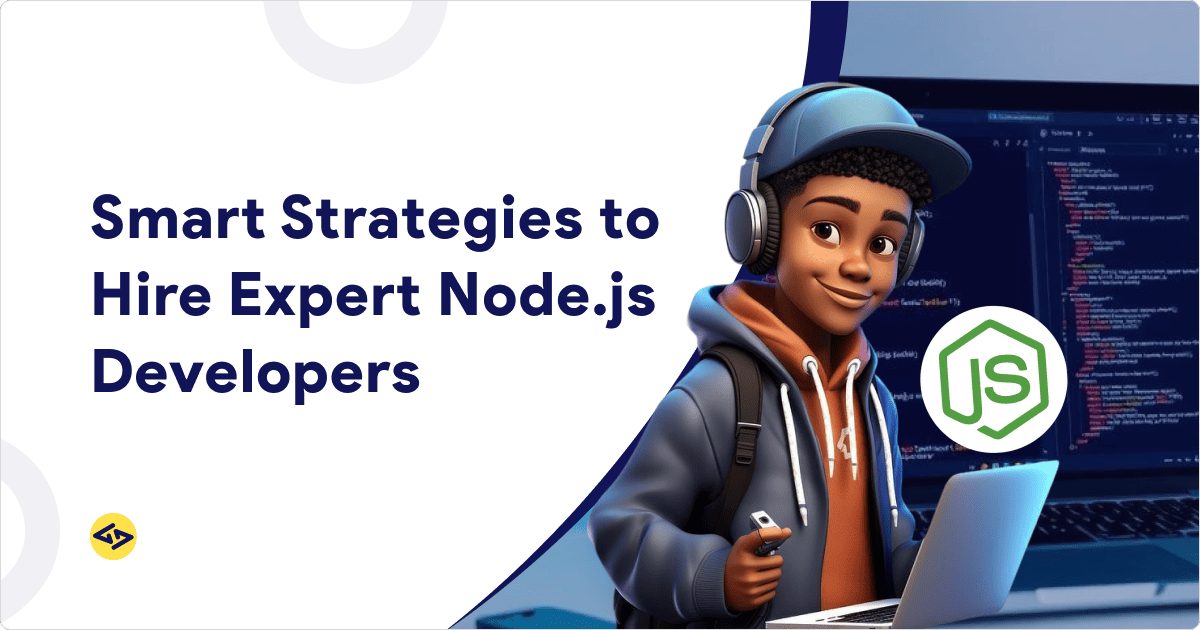Introduction – The Right Partner is Everything
This guide is for non-technical founders ready to turn their startup idea into a reality. Finding the right app developer can feel like a major hurdle. It’s not just about hiring someone who can code; you need a partner who understands your vision and can bring it to life.
Research indicates that a substantial percentage of startup failures are attributed to team-related issues. Hiring the wrong developer can lead to costly delays, a wasted budget, and a product that fails to meet expectations.
This guide is here to help you find an app developer for your startup—someone who’s the right fit, both technically and strategically. We will walk you through different hiring options, where to find good app developers, and how to vet them properly. With the right developer by your side, your startup has a much better chance of success.
Section 1: Understanding What Type of App Developer You Need
Before you begin the hiring process, it’s important to understand what kind of app developer you need. App development is a broad field with many specializations, and choosing the wrong type can waste time and resources. For example, if you’re building a social media platform, you might need both mobile and web developers, while a simple internal tool might just need a web developer.
Mobile vs. Web App Developer
If you’re building a mobile app, you will need a mobile app developer who specializes in platforms like iOS (Swift) or Android (Kotlin/Java). For a web-based platform or dashboard (e.g., for an admin panel or SaaS dashboard), look for a web developer skilled in front-end (React, Vue) and back-end (Node.js, Laravel, etc.) technologies.
Native vs. Cross-Platform Development
Native developers build apps specifically for iOS or Android. Cross-platform developers use tools like Flutter or React Native to create apps that work on both platforms from a single codebase. A key trade-off to consider is that cross-platform development may slightly sacrifice performance or access to native features compared to a native app.
Frontend, Backend, or Full-Stack?
- Frontend developers handle the layout, UI, and user interactions.
- Backend developers manage the server, logic, and database.
- Full-stack developers handle both—ideal for MVPs or smaller teams.
- If you’re still confused by these terms, here’s a detailed explainer on the differences.
Do You Need a Designer Too?
Many developers are not designers. If you want a great-looking and user-friendly app, consider hiring a UI/UX designer to create mockups before development. Design-first development saves time and reduces costly rework later.
Section 2: Comparing Hiring Models – Freelancer, Development Agency, and In-House Developer
Before you start your search, you must first define your hiring strategy. The choice between a freelancer, a development agency, or an in-house hire will dictate your budget, timeline, and the very nature of your partnership. Your decision should be based on a careful assessment of your project’s needs and your long-term goals.
Hiring a Freelance Developer
Hiring a freelancer is often the most accessible option for startups with a clear, limited scope and a tight budget. They are incredibly flexible, and you can employ them around a specific job or a defined number of hours. It is an ideal model to build a small prototype, an MVP with a handful of fundamental features, or for a rapid feature-specific project. A single developer may lack the skills for complex projects, leaving you to manage design, QA, and coordination.
Hiring a Development Agency
A development agency is ideal for founders who require a professional product created with a systematic approach—meaning they have organized teams and clear processes. Agencies will provide you with access to a complete team of professionals: developers, UI/UX designers, project managers, and quality assurance testers to collaborate within a close-knit team.
This implies that you do not need to employ and maintain a large workforce. Agencies adhere to a well-tested method of development such as Agile or Scrum, which guarantees project delivery on budget, at a high level of quality, and with transparent communication. Though the initial cost is higher, the investment usually pays in speed, quality, and a decreased chance of failure, as many agencies reduce time to market by 30-40%. When it comes time to build a full-scale product or when you might require long-term support and scalability, this is the model to use.
Hiring an In-House Developer
Hiring a full-time developer is a long-term tactical decision. This option would be ideal for startups that have received funding and require a technical leader who is fully committed to the company’s mission and culture. An in-house developer is an anchor member of your staff, with direct access and real-time teamwork. The learning process remains proprietary and in-house, which is priceless for your future. The main disadvantages include the steep fixed costs due to salary and benefits, and the time-consuming nature of sourcing and recruiting a top-tier candidate. This is a heavy commitment model and best suited when the product is validated and you are set to scale.
Section 3: Where to Look for App Developers
Now that you know what kind of developer you need, here’s where to find them. Knowing where to find good app developers will help you locate the right talent more efficiently.
Online Freelance Platforms
Freelance marketplaces are the go-to for finding flexible talent quickly. Platforms like Upwork allow you to filter candidates by ratings, reviews, and past project data. You can find everything from a beginner to a highly experienced developer. For a more curated experience, Toptal specializes in elite, pre-vetted developers who have undergone a rigorous screening process. Fiverr Pro offers a curated pool of qualified freelancers for quicker, more defined project work. These platforms also provide built-in payment protection and feedback systems, which add a layer of security to the hiring process. These platforms are a great place to find a freelance app developer.
Professional Networks and Startup Communities
Start by leveraging your professional network, which often attracts passive candidates who might be the best ones.
- LinkedIn allows you to engage in a targeted search and identify developers with the relevant experience, and contact them via mutual connections.
- AngelList Talent is a specific recruitment platform where candidates are already interested in working in an early-stage environment.
- You should not underestimate the importance of requesting referrals from your network.
- Startup meetups and hackathons are also a great way to find enthusiastic and engaged developers who are aware of the latest tech trends.
Hiring a Development Agency Through Directories
If you’ve decided on an agency, digital service directories are your best resource. Sites like Clutch.co and GoodFirms allow you to browse and sort agencies based on client reviews, location, budget, and specific expertise. These directories offer in-depth client testimonials and detailed case studies that help you assess an agency’s past work and client satisfaction before you even reach out. This is a valuable step for building a shortlist of potential partners who have a proven track record.
Section 4: How to Vet and Evaluate Developers
The technical interview process should go far beyond checking off skills on a resume. A strong vetting process ensures you’re hiring a true collaborator who can think critically and communicate effectively.
Preparing a Development Brief
Before you speak with any developers, create a comprehensive development brief. This document is your North Star. It helps you articulate your vision and ensures all candidates are responding to the same set of requirements. The brief should include a high-level overview of your startup, the key features you need, your target audience, and your budget and timeline. Knowing what to include in a development brief ensures consistency in expectations and avoids confusion during the vetting phase. Sharing this brief upfront saves time and helps attract candidates who are genuinely a good fit for your project.
Evaluating Developer Portfolios
A developer’s portfolio is your first look into their capabilities. Go deeper than surface-level design. Look for a diversity of projects that showcase their problem-solving skills, not just their final code. Pay attention to the user experience (UX) and user interface (UI) of their past work—is it clean, modern, and intuitive? If they can share a code sample, look for clean architecture and good documentation. Compare portfolios based on relevance to your industry and the complexity of the features you need. Understanding how to evaluate a developer’s portfolio is critical for aligning their skillset with your project’s technical and design expectations.
Conducting Interviews with Developers
Use interviews to assess communication and collaboration skills, not just technical ability. Instead of a technical quiz, try asking open-ended questions like:
“Can you walk me through your most challenging project and how you solved it?”
“How do you handle changes to a project’s scope midway through?”
The best developers are critical thinkers who will want to understand your business goals and user needs. They won’t just say “yes” to your ideas; they’ll ask clarifying questions, suggest improvements, and show a genuine interest in your product’s success.
Section 5: Common Red Flags to Watch Out For
Hiring the wrong developer can be a costly mistake. Being aware of these red flags when hiring a developer can help you avoid these pitfalls.

- Unrealistic Promises: Be wary of claims like, “I can build your entire app in one week for $300.” These are not feasible and suggest inexperience or dishonesty.
- No Portfolio: There is nothing to confirm proficiency or professionalism because there is no illustration of previous work. The candidate may mention confidentiality, but at least one relevant example must be offered with the client’s consent.
- Bad communication: When a candidate takes several days to answer simple questions or evades clarification, this is a strong signal that they will cause delays and be a nightmare on the project.
- No clear development process: A good developer will have a process—sprints, timelines, code reviews, and testing. The absence of this structure will be a sure formula for chaos.
- Complete Payment in Advance: Legitimate developers tend to use milestone payments to safeguard both clients and themselves. This is a significant red flag to demand full payment beforehand.
- Lacks Interest in Your Business Goals: An excellent developer will care not only about what to create but also why. The best app developers care about solving a problem for your users, not just writing code.
The Final Step: Bringing Your Vision to Life
The journey from a startup idea to a fully functioning app is full of pivotal decisions. One of the most impactful choices you’ll make is who builds your product. The right partner must be as passionate as you and invested in your vision, whether you hire a freelancer, a development agency, or an in-house expert.
Remember, you’re not just hiring someone to write code. You’re creating a relationship with a partner who will establish the digital half of your business and provide a technical cornerstone for your startup’s success.
Whether you need a team that can build a high-quality mobile or web application with an understanding of the specific needs of a startup, we can help. Contact iCoderz today to turn your vision into reality and find the perfect app developer for your startup.
Find the Right App Developer for Your Startup Today!
Skip the guesswork. Let us help you connect with skilled and reliable app developers who understand the needs of startups.




